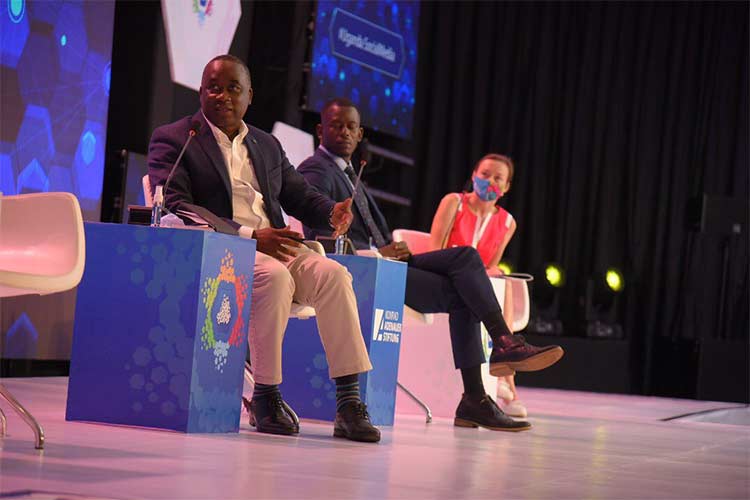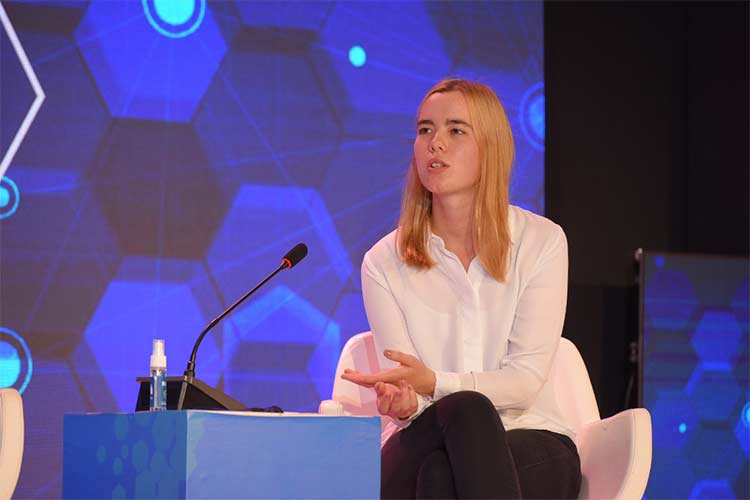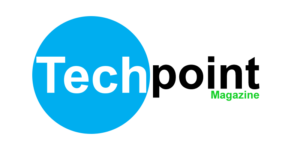The 2021 Uganda social media conference has come to an end after 2 days of discussions on the impact of social media in society. Hosted by Konrad-Adenauer-Stiftung (KAS) Uganda, the conference highlighted key challenges and opportunities associated with social media usage, growing trends on society and state adoption as analysed by stakeholders from government, civil society, academia and the media.
With panels on citizen journalism vs digital media, digital diplomacy, tackling emerging digital threats, reframing the climate change agenda on social media, impact of social media on mental health, the state of social media and elections in Africa, among others. The conference was held virtually and key take aways include the impact of Big Tech companies on the nature of conversations together with the African way of blocking Social media platforms.
Big Tech Companies should be checked
Off the Topic, Digitial Diplomacy: The rise of algorithms and implications for big tech in African institutions, governments and individuals moderated by Alex Talemwa, a digital journalist and Academia at Agah Khan university Kenya, Big Tech companies were noted as brands with excessive power on social media.
Facebook in particular silenced Pro-NRM bloggers in Uganda which later resulted into an indefinate ban of the platform in Uganda. Also, Facebook has silenced many users from other countries sighting violation of its terms and conditions bringing to book a mighty question, do Big tech companies like Facebook, Twitter, Google hold to much power on Social media?

The founder of Africa Leo Institute and former director at the Government citizen interaction center, Awel Uwihangye notes that over 2.5 Million users continue to use Facebook through VPNs despite the platform being blocked in Uganda. More so, the recent Facebook action to permanently ban NRM bloggers in Uganda proved that the company can silence anyone on the platform and not face any serious effects from it.
“I don’t support the Facebook ban. If it were up to me, I would not have blocked the platform in Uganda but I understand the frustration of the authorities that did. You cannot be in the middle of an election and you hear that your supporters have been suspended off a platform for no explainable reason.”
Said Uwihanganye at the conference.
Social Media as a tool of change
Across the world, Social media has become a tool for change, a tool activists use to demand for change, and an avenue customers use to express their views on brands and services online. However, with change comes new challenges and ways to express views by leveraging social media.

Discussed on a panel moderated by Denis Nabende; the URBS corporate affairs manager, on the Topic Citizen Journalism vs Digital newsrooms, Blanche Musinguzi – a journalist with Africa report noted that Social media alone can’t cause change, but rather, a mix with ordinary media makes change diverse and easily achievable.
A tweet cannot bring change. There are a lot of things that happen in the backend of these movements.
During the George Floyd protests there was a lot of mobilization. Text messages. emails, phone calls
Said Blanche Musinguzi – Journalist, Africa Report
Furthermore, panellists agreed that many social movements tend to rise and end online. Social movements create awareness about an issue. But it’s always how organized they are, and the commitment of the contributors to find a solution as per the movement’s cause. So, if social media is to bring change, It should not always end with just a hashtag, but involve physical action if users are to force change.
Dealing with Fake News on Social Media
Social media is a great tool of communication, but with it comes a very big challenge that has become popular across the world. Misinformation has become a daily mover on the Internet and social media is a super spreader through which malicious users forge and spread fake news to millions of consumers daily.
In fact, Mis Infomation has led to the suspensions of social media during elections mostly in Africa and some parts of the world. Also, this has painted a false image for social media as a bad platform utilized by the youth to spread malicious information hence affecting youth-led online businesses and user perceptions.
On a panel moderated by Opolot Nicholas: the Progmmae officer at KAS Uganda and South Sudan with the topic “tackling emerging digital threats: extremism, trafficking and radicalization”. Panalists discussed on the impact of fake news and how users can safe guard themselves form being carriers of misinformation.
Panelists including Besigye Andrew – a public policy expert at the Ministry of ICt, Ojok Okello – the founder Okere City, Agnes Igoye – the deputy national coordinator for prevention of trafficking in persona dn Lynna Abaho – the Labour support officer at Ministry of Gender agreed that it is important to learn to distugungish and filter information found on socoail media to limit the spread of fake news on social media platforms.
Question everything you come across online. Double check the sources before you share, reshare or invest your time & resources in. That’s how we (as internet users) shall be able to defeat extremism, online trafficking among other digital threats.
Lynna Abaho – Labour Support officer, Ministry of Gender
